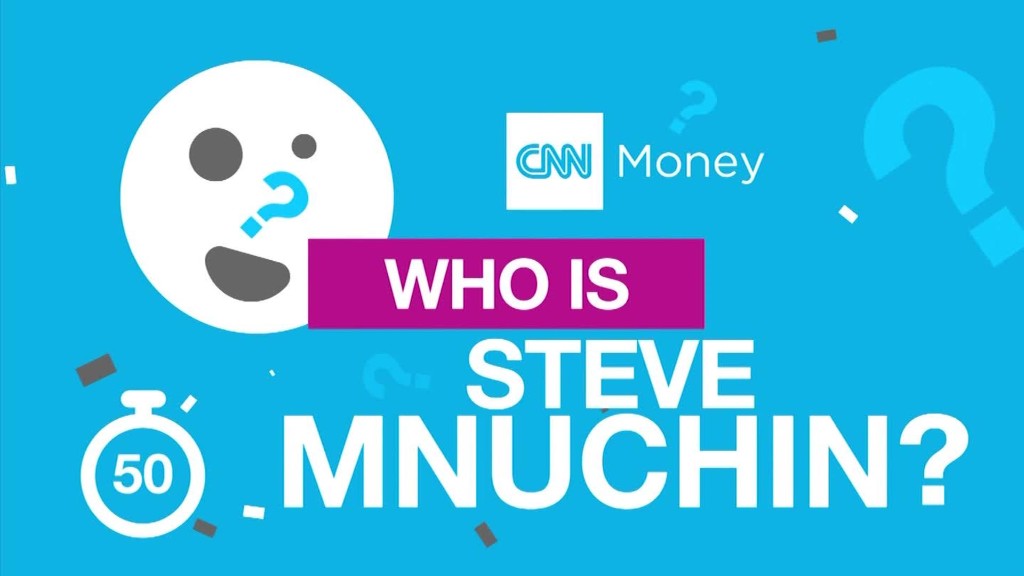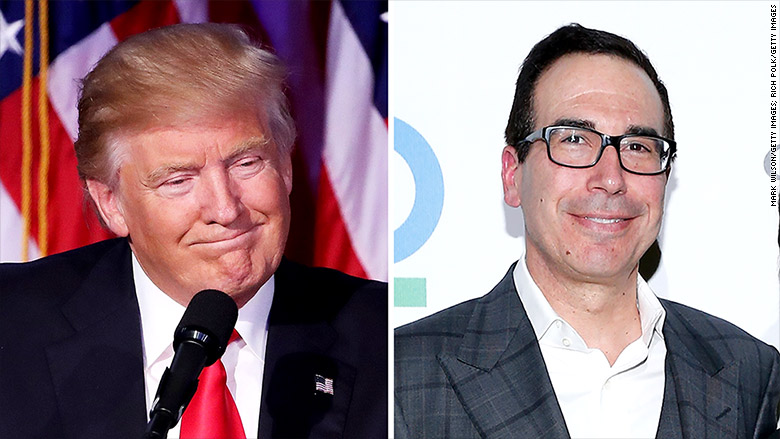
A leading choice to be Donald Trump's Treasury secretary is a campaign fundraiser and ex-banker who profited from both the housing meltdown and Bernie Madoff's ponzi scheme.
Steven Mnuchin is literally a child of Wall Street. His father was a partner at Goldman Sachs, and so was he. He worked for the firm for 17 years and reportedly earned $46 million.
These days he is a Hollywood producer, putting out films including this past summer's "Suicide Squad" as well as "American Sniper" and "The Lego Movie." His latest film, due in theaters this month, is called "Rules Don't Apply."
Mnuchin joined the Trump campaign as finance chairman in May, and sources tell CNN he made it clear early that he wanted the treasury job. He is already recruiting deputies, and a source in the financial lobby said that the industry is already open to the idea.
The post oversees banking regulation, financial markets, federal government debt and the IRS.
Mnuchin has built a career of controversy and contradictions.
He has contributed to both Republican and Democratic candidates, including Hillary Clinton's Senate campaigns and 2008 presidential run. He gave to Barack Obama's Senate and presidential campaigns and to Charles Schumer, the new Democratic leader in the Senate.
Mnuchin also worked with George Soros, the billionaire financier who has bankrolled liberal candidates and causes -- and who was depicted as a villain in Trump's last campaign ad.

Mnuchin and his brother were sued by the trustee trying to recover money for Madoff's victims after the ponzi scheme unraveled in 2008. They were executors of their mother's estate, and had withdrawn $3.2 billion of her money shortly after she died in 2005.
A court eventually blocked the trustee, Irving Picard, from collecting profits withdrawn from the Madoff fund that long before its collapse.
Related: How top business leaders are reacting to Trump win
Mnuchin led the group that bought failed subprime lender IndyMac for pennies on the dollar in 2009, about a year after the FDIC took over the California bank following a run on deposits by customers.
IndyMac had become a poster child for the risky home loans that brought on the housing crisis and the meltdown in financial markets. The FDIC agreed to assume much of the losses as part of its sale to Mnuchin, who renamed it OneWest.
Related: Carl Icahn left Trump victory party to buy stocks as markets plunged
But regulators soon questioned OneWest's foreclosure practices, which included so-called robo-signings that pushed homeowners into foreclosure without proper review or due process.
The bank was one of many that agreed to pay millions in fines to compensate customers. Occupy Los Angeles protesters even showed up at Mnuchin's Bel Air mansion.
Mnuchin eventually sold OneWest to CIT Group in 2014 for $3.4 billion and joined CIT as part of the deal. When he left CIT less than two years later, he received a $10.9 million severance package.


